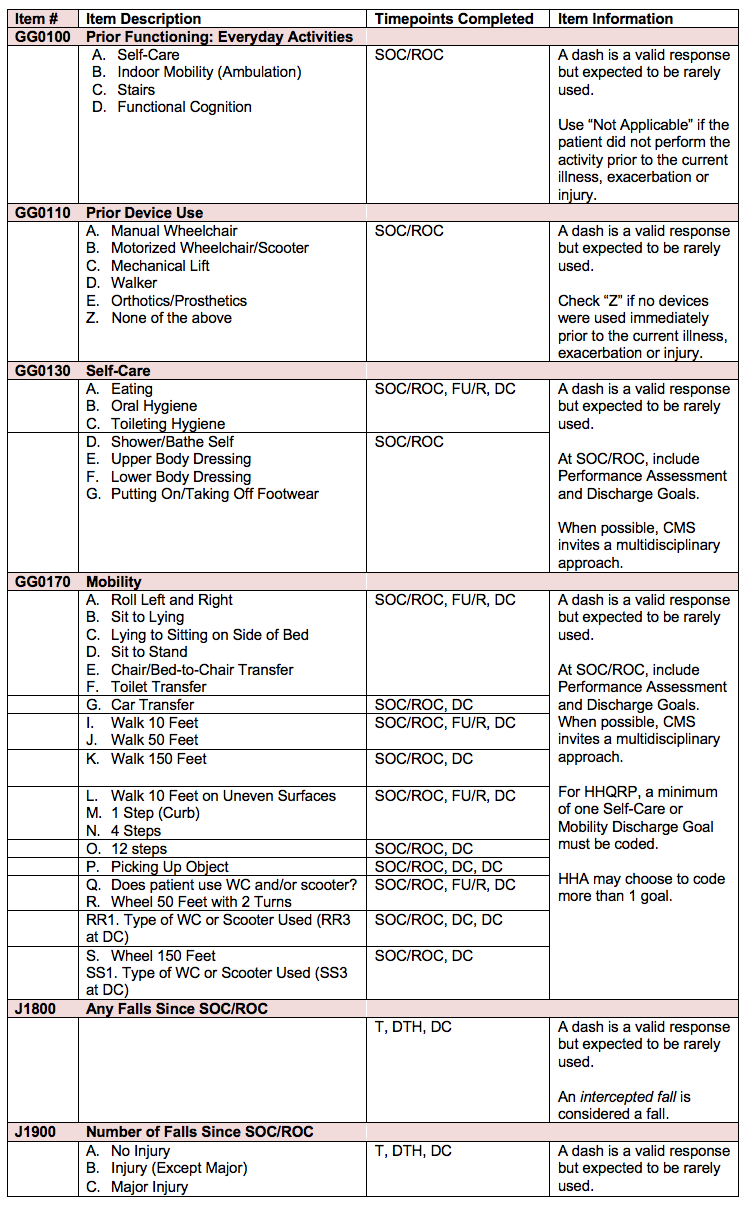Note that this list describes standard home care services, not home healthcare. Some elders included in this list, such as those in requirement of treatment services, would be a great suitable for home healthcare instead of house care.
Senior citizens seeking the friendship of their peers rather than an assistant Drug Abuse Treatment or caregiver Seniors who require nursing care, or other regular medical careSeniors who want an all-inclusive way of life like those used in lots of residential care communitiesSeniors who want physical, occupational, or speech therapy services in the home Seniors with sophisticated memory impairment who require a protected environment and 24/7 care Lots of older adults eventually reach a point where they can no longer care for themselves the method that they used to. It can function as an in-between for senior citizens who are having a hard time to care for themselves or their house completely independently, however do not need ongoing support. It's likewise a good alternative for seniors who may have been resistant to vacating their house, but who do need aid with a few of their ADLs. Weight-loss or decreased muscle massDecreased mobilityIncreased forgetfulnessWorsening health practicesNeglecting to keep home tidiness or organizationInability to drive or any incidents while drivingIsolation or signs of lonelinessThe occurrence of mishaps and injuries such as falls Some seniors might also need house care on a short-term basis, such as when they are recuperating from a surgery or health emergency like a stroke. Under the umbrella of at home care, there are several different kinds of support and different roles of those who provide these services (what is the effect on the price of health-care services over time?). The type of care one needs will depend on their health, capabilities, and, in some cases, budget plan.
Buddy care services, individual care help, and home healthcare are 3 typical kinds of home care. Buddy care services are perfect for elders who live individually and do not need much assistance with their activities of daily living. Those in need of buddy care services usually live alone and feel isolated in.

their everyday lives. The aide provides some much-needed social assistance. A house care aide supplying buddy care might simply invest time with the client and engage with them, check out to them, take part in the customer's pastimes such as https://www.google.com/maps/d/edit?mid=11vdMr66GB-_fNTml94_bEGrm7PDJTo6y&usp=sharing parlor game or walking, or offer guidance. Though usually companion care aides are not licensed to administer medications or otherwise supply any type of medical care. Buddy care services are also a great option for those in the early phases of memory problems who do not yet require much assistance, but who might not be able to be left alone. Personal care help is ideal for seniors who Mental Health Doctor require routine aid with their activities of daily living. Personal care assistants can offer a broad variety of services, including help bathing and toileting, grocery shopping, and movement support to prevent falls. These assistants might provide any healthcare beyond medication management. So personal care assistants can certainly provide assistance to make the customer's life much easier and much safer. But it is not matched for those with routine medical requirements - what are the primary health care services. Many households offering caregiving services for a liked one look for personal care support to carry out the jobs that they are not able to safely or easily carry out for their loved ones. Individual care aides can also be utilized as break if a household caretaker requires to take a trip or understands that they will.
run out the home throughout the day. Home health care differs from the other kinds of house care because house healthcare assistants carry certification to offer medical support. Seniors who require regular medical services, such as injections or infusions, can work with a house health care company on a routine basis. Others may seek house.
health care on a short-term or as-needed basis, such as when recuperating from an injury or surgical treatment. The series of services that a person can receive from a house health assistant resembles what one would get in a retirement home - in a free market who would pay for the delivery of health care services?. Unlike buddy care aides and personal care help, home health aides must have specialized training and accreditation, such as a nursing certificate, in order to carry out these services. Those who have the proper accreditations can even administer skilled nursing care in customers' homes. House care encompasses a large range of services, which expands even more with home health care. The services each specific customer gets will depend on their requirements and preferences and, in some cases, the capability of the caretaker. It's important to constantly guarantee that the hired caregiver can supplying the necessary care before developing a contract with them. Housekeeping, consisting of cleansing, washing meals, and laundryMedication management and suggestions Meal preparation and grocery shoppingCompanionshipTransportationTransferring and other kinds of movement help Support with activities of everyday living consisting of bathing, dressing, consuming, and toiletingCognitive stimulation, including conversation, reading aloud, and playing brain gamesSupervision, especially for those in early phases of memory impairmentRespite for caretakers Medication administration, including injectionsOccupational therapyPhysical therapyIV therapy and infusionsFirst help and injury careBlood withdrawalRespiratory therapyManagement of persistent conditions, such as keeping an eye on glucose levels for seniors with diabetesMaintenance of feeding tubes, colostomy bags, oxygen tanks and tubing, etc. Below, we explore the expense of in-home care and financial support alternatives that can help elders and their households cover the expense of.

care. The typical cost of at home care in the United States is$ 4,290 a month, according to Genworth Financial's Cost of Care Survey. For house healthcare, the expense is greater, at approximately$ 4,385 a month. Remember that the above figures are the nationwide average. Depending upon your area, house care can either be substantially more economical or a lot more expensive than the listed expenses. For instance, in Louisiana, in-home care costs approximately $3,218, potentially saving locals over$ 1,000 a month compared to the nationwide average. Regardless of one's state, house healthcare will almost constantly be more expensive than basic house care since of the medical certifications and training needed of the caregivers. Numerous senior citizens and their households find it challenging to spend for care, whether provided in one's house or a domestic neighborhood. Thankfully, there are monetary support alternatives readily available for at home care. In many cases, an individual's private insurance might cover a few of the expense of in-home care. This typically uses to individuals with long-lasting care insurance coverage, as most long-term care services.
Little Known Questions About Patients Who Obtain Health Care Services Outside Hospitals Are Classified As.
, consisting of home care, are not covered by routine insurance policies. Long-term care insurance is created to cover senior care, including in-home care. Typically, long-term care insurance will just begin to cover care once the beneficiary requires help with a minimum of 2 ADLs. So those just in need of buddy care might not be covered even if they do have long-lasting care insurance. Keep in mind that purchasing long-lasting care insurance coverage once you already require care is typically not a choice, and if it is, the policy will not cover really much. For elders who qualify, Medicaid does pay for in-home care. In order to get Medicaid protection of in-home care, senior citizens need to meet the requirements for both medical requirement and financial requirement. Sometimes, the senior will need to undergo a medical examination to prove that they require the level of care they are getting.